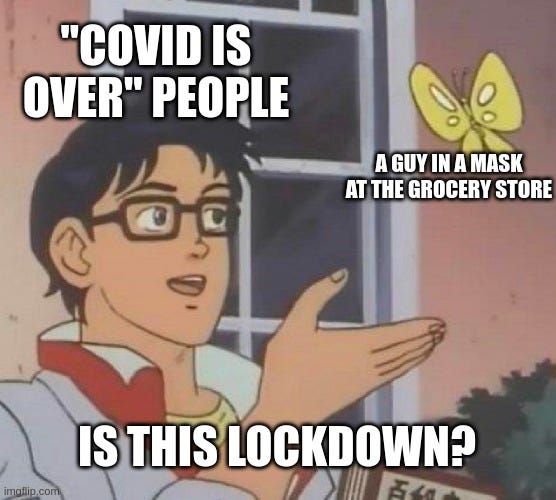
The term for this is “lockdown revisionism”
The term “lockdown” has become a powerful and perverted word in the infodemic about democracies’ responses to the COVID-19 pandemic. Lockdown, as used in public discourse, has expanded to include any public health measure, even if it places little to no restriction on social mobility or interaction. For example, a working literature review and meta-analysis on the effects of lockdowns on COVID-19 mortality misleadingly defined lockdowns as “the imposition of at least 1 compulsory non-pharmaceutical intervention.”1 This working paper therefore conflated mandatory isolation for people with confirmed infections and masking policies with heavy-handed limitations on freedom of movement, and since it gained viral fame, it has helped fuel calls for “no more lockdowns.” This working paper has been highly critiqued and is less convincing than comparative assessments of health measures, like the Oxford Stringency Index.2,3 Here, we discuss the spread of misinformation on lockdowns and other public health measures, which we refer to as “lock-down revisionism,” and how this phenomenon has damaged trust in public health initiatives designed to keep people safer.


